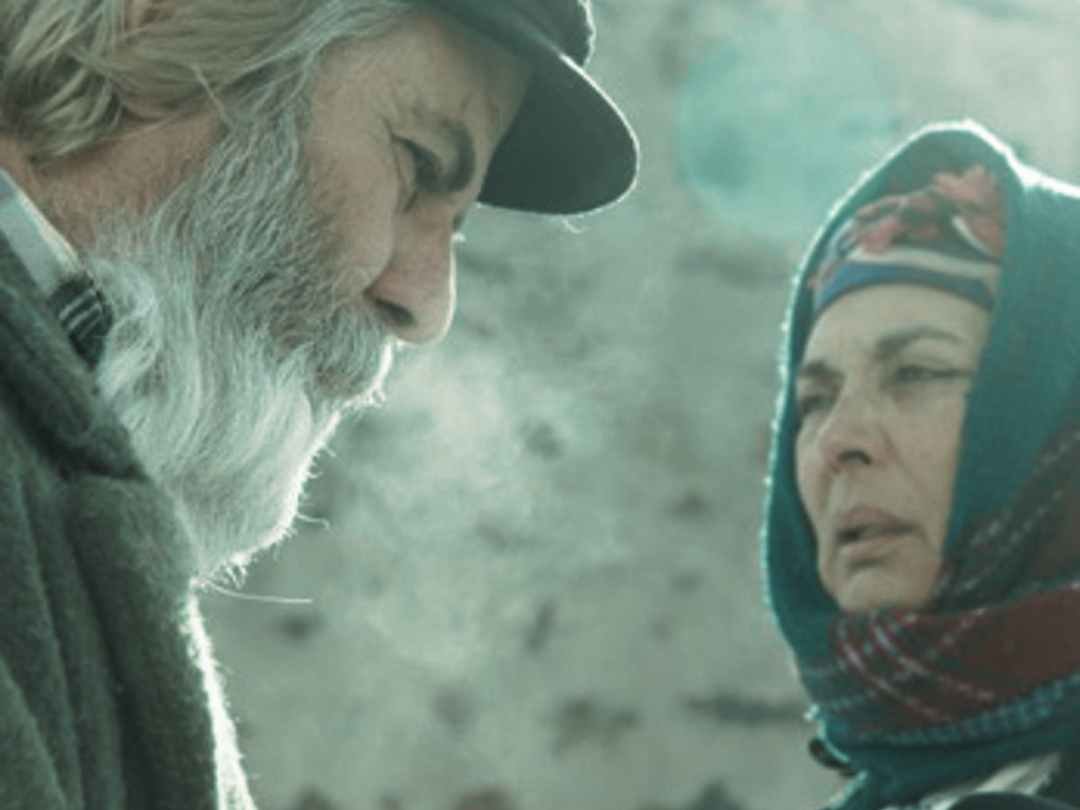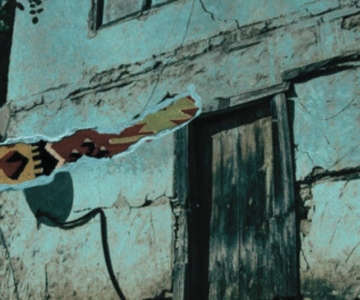“There is a village far away, whether we go there or not. That village is our village…”
Perhaps one of the most beautiful words to describe this film. Some films do not give the audience plenty of action, plenty of comedy, plenty of sadness or a pinch of fear, a pinch of intrigue. Some films take the audience into a tiny world built by big hearts on a white screen and make them feel their missing parts. This film is such a film. Just like Cemal Süreya’s poem about Kars, which he wrote after feeling as if he was there without having seen it, Deli Deli Olma is a film that can take you to Kars and the East without having been there. If you have any doubts about “don’t get me out of my warm bed and take me to cold Kars”, don’t be afraid. Because this film is the kind of film that may even cause you to remove the quilt you have covered yourself with because of the warmth you feel…
In the film starring two great masters; Tarık Akan and Şerif Sezer, the actors who portray other characters and the promising young actors of the future also impress with their performances. Tarık Akan and Şerif Sezer are back on the big screen for the second time after the Yılmaz Güney film Yol. This time in the director’s chair of the film that brings the two masters together again; Murat Saraçoğlu, who has proven himself with his works in recent years, has appealed to large masses with these works and has made a sound. In our country, he is one of the valuable directors rising in recent years. He laid a solid foundation for his career with “Children of O.” and “120”, which he shot before “Deli Deli Olma”, and with the two films he shot after “Deli Deli Olma”; “72. Koğuş” and “Yangın Var”, he caught his own line and took the image of a director who took firm steps forward.
In order for a film to leave you under its influence for years; the actors, the director must do a good job and of course we should not forget the music of the film. Perhaps the biggest reason why the film takes you into its fascinating atmosphere is its music. The soundtrack is very well edited and selected at every moment of the film. It is neither too long and boring nor too short and leaves the taste on the palate. The soundtrack of the film, which won the best music award at the 46th Golden Orange Film Festival, confirms this. Mert Erdem and Özgür Akgül are the names that give life to this music.
Hazel Sevim Ünsal wrote the film’s screenplay, and she successfully handled it. When we look at the whole film, elements such as joy, sadness, comedy, love, and separation have been edited without exaggeration and transferred to the audience in the same way. The naturalness of the film is integrated with the scenario and presented to the eyes.
The film takes you under the sadness from the first scene. Mişka aka Yeke Kişi; (Tarık Akan) is the last representative of the Malakan tribe in that village, who were exiled from Russia to Kars during the 93 War. The village in general loves and respects him, but they do not show it much, especially in front of someone. Because there is Papuç Grandma (Şerif Sezer), the grumpy old man of the village, whom the villagers fear and avoid. Papuç hates Mişka to death and cannot even tolerate him living in the village. Papuç lives with his son Şemistan (Levent Tülek), his daughter-in-law Figan (Zuhal Topal) and his three grandchildren. The whole village and even his family are caught between Papuç and the benevolent Yeke Kişi. Papuç’s youngest granddaughter Alma (Cemile Nihan) is a small, sweet, tough and a little headstrong girl with an innate ear for music. Although Grandma Papuç does not want her granddaughter to be involved in music, Alma’s teacher Metin (Korel Cezayirli) has discovered her talent and has started to work to utilise this talent. The piano, which was left from the family to Mishka, embellishes Alma’s dreams and pleases her, and finally she gets it. When Papuç sees the piano and learns that its former owner was Mishka, he goes mad. In these episodes, the comedy elements start to revolve around the piano and really leave an innocent smile on people’s faces.
Towards the end of the film, sentimentality takes over again. Mishka is too ill to recover and is on his deathbed. Now, Papuç’s hatred and Mishka’s regrets are revealed like a secret. Now it is time for Papuç and Yeke Kişi to confront their common past and return to the past. Towards the end of the film, you may need to have a handkerchief with you, I’m telling you. Not because you will cry, but to protect your eyes from the dust clouds brought by the untimely wind. Before I forget, Allahyar (Muhammed Cangören) and Meheddin (Halil Kumova) also star in the film.
Deli Deli Olma is a film that tells the sincerity, purity and benevolence of the people of the East, and without exaggerating this, it is a film that makes you laugh when it comes to laughing, sad when it comes to sadness and crying just in time. If you like to get into a little emotional mode, this film is worthy of your eyes. Bon appetite in advance.
Tarık Akan’s song “Bir Sarmaşık Olsaydım” will take you away when you listen to it. In the film, where the Kars dialect is reflected very well, although there are some glitches, even the contest of “Dudak Değmez” held by Şemistan and other minstrels is worth seeing, and the film lines are also heart-wrenching.
– What is your village famous for?
– Well, its people.
– People, how do you mean?
– It has very lung people.
TITLE
Release Date: 17 April 2009
Duration: 100min
imdb: 7.5
Genre: Drama
Director: Murat Saraçoğlu
Screenwriter: Hazel Sevim Ünsal
Production: 2009 – Türkiye
Producer: Tolga Aydın




